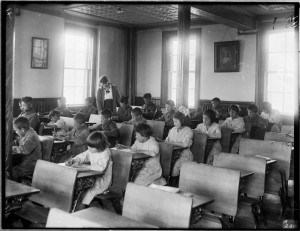
As Canadians we tend to believe we occupy the moral high ground, upholding universal standards of what is right and wrong, good and bad, yet when it comes to our moral relevance, actions always speak louder than words.
Last week the Truth and Reconciliation Commission made that clear by urging Canadians to take it upon themselves to right the wrongs caused by the Indian Residential School System that stripped thousands of Aboriginal children of their language, culture and identity.
For over a century, the government forced 150,000 First Nations, Métis and Inuit children to attend government-funded schools across the country in a bid to assimilate them into mainstream Canadian society.
Often times, children were at the mercy of priests and nuns and were subject to emotional, physical and sexual abuse.
Justice Murray Sinclair, chair of the Truth and Reconciliation Commission, estimated at least 6,000 children died in the care of residential schools, although only 3,201 deaths were officially recorded with the cause of death reported in fewer than 50 per cent of the cases.
To put it in perspective, the odds of dying at an Indian Residential School was one in 25, while the odds of dying as a Canadian in the Second World War was one in 26.
The report described the state-sponsored system as “cultural genocide” and included 94 recommendations to begin the process of reconciliation.
One of those recommendations included a Royal Proclamation of Reconciliation that, if implemented, would amount to a complete overhaul of the relationship between Aboriginal peoples, the Crown and other Canadians.
Another included an apology from the Pope for the churches role in the schools, while another demanded an investigation into murdered and missing aboriginal women.
Whether these recommendations are implemented and taken seriously will be a true test of our character, not only as individuals, but also as an entire country.
As Canadians we have a duty to protect the rights of minorities and a responsibility to right a wrong, even if the challenge seems insurmountable.
All it takes is political will, and with a looming federal election this fall we will get the opportunity to have that will known.
The challenge now is to keep the issue alive and demand that our local representatives from each political party make it a priority.
If we don’t, we will continue to live in country where systemic discrimination, poverty and racism is tolerated and that’s a country no one wants to live in.
